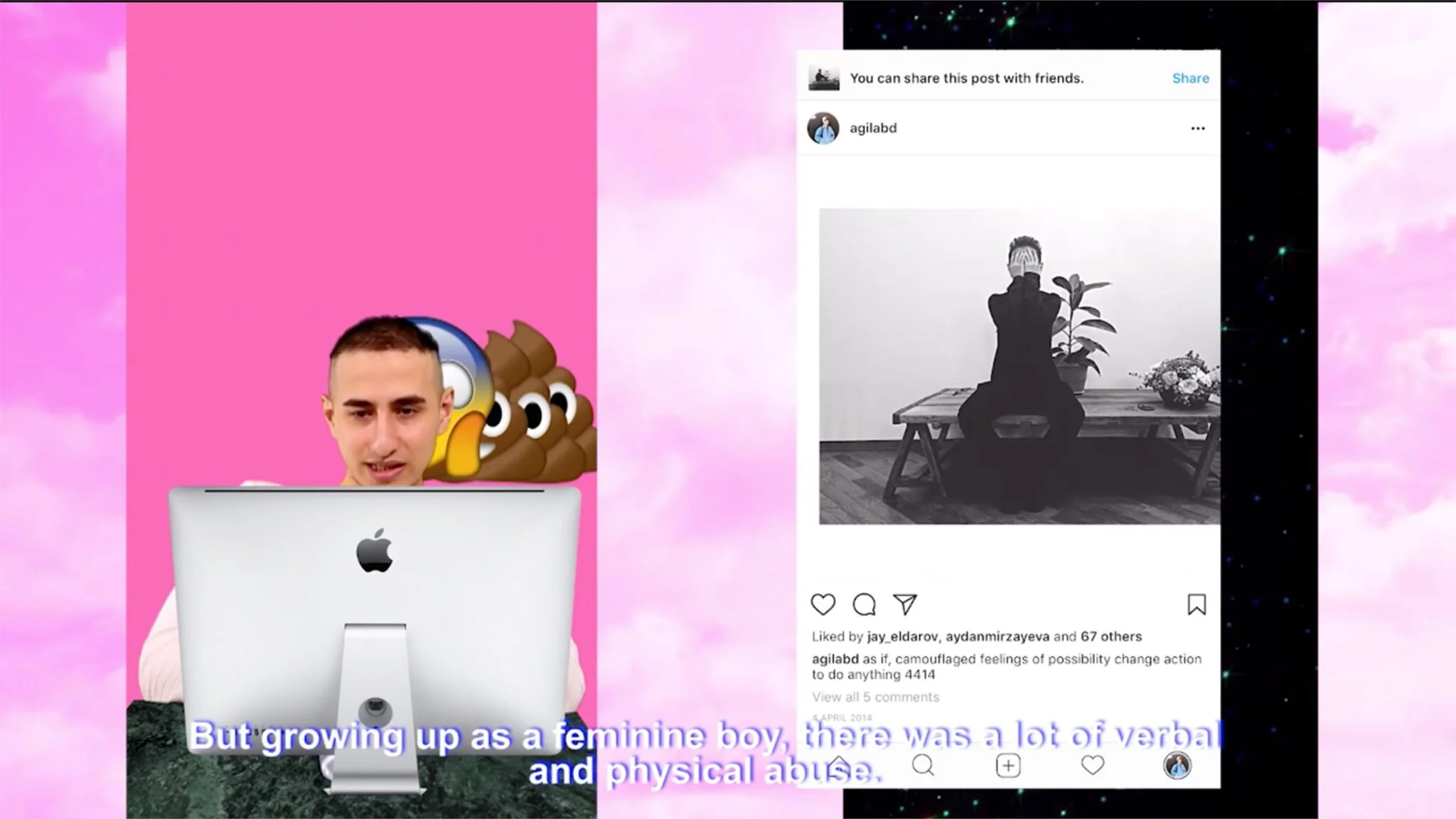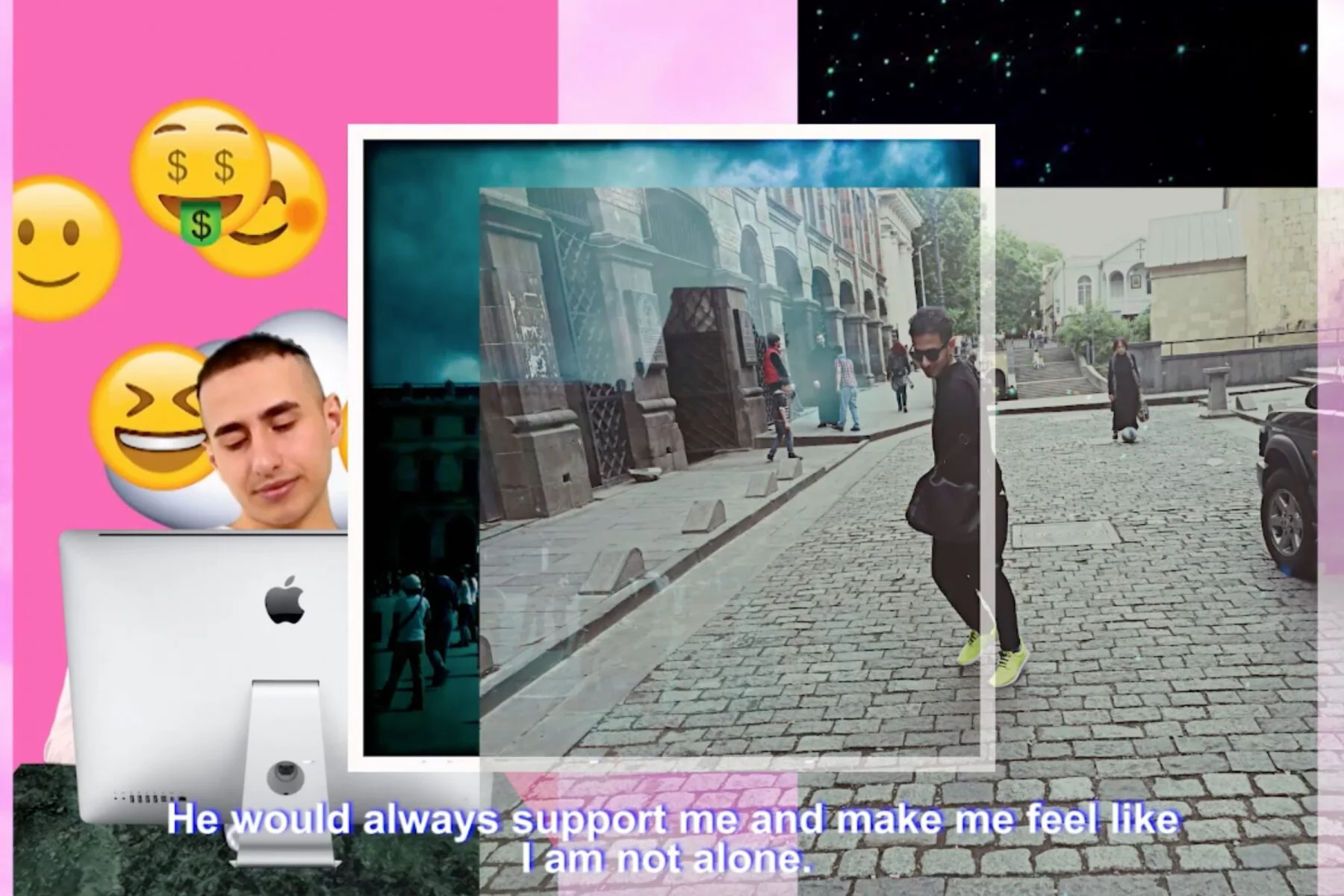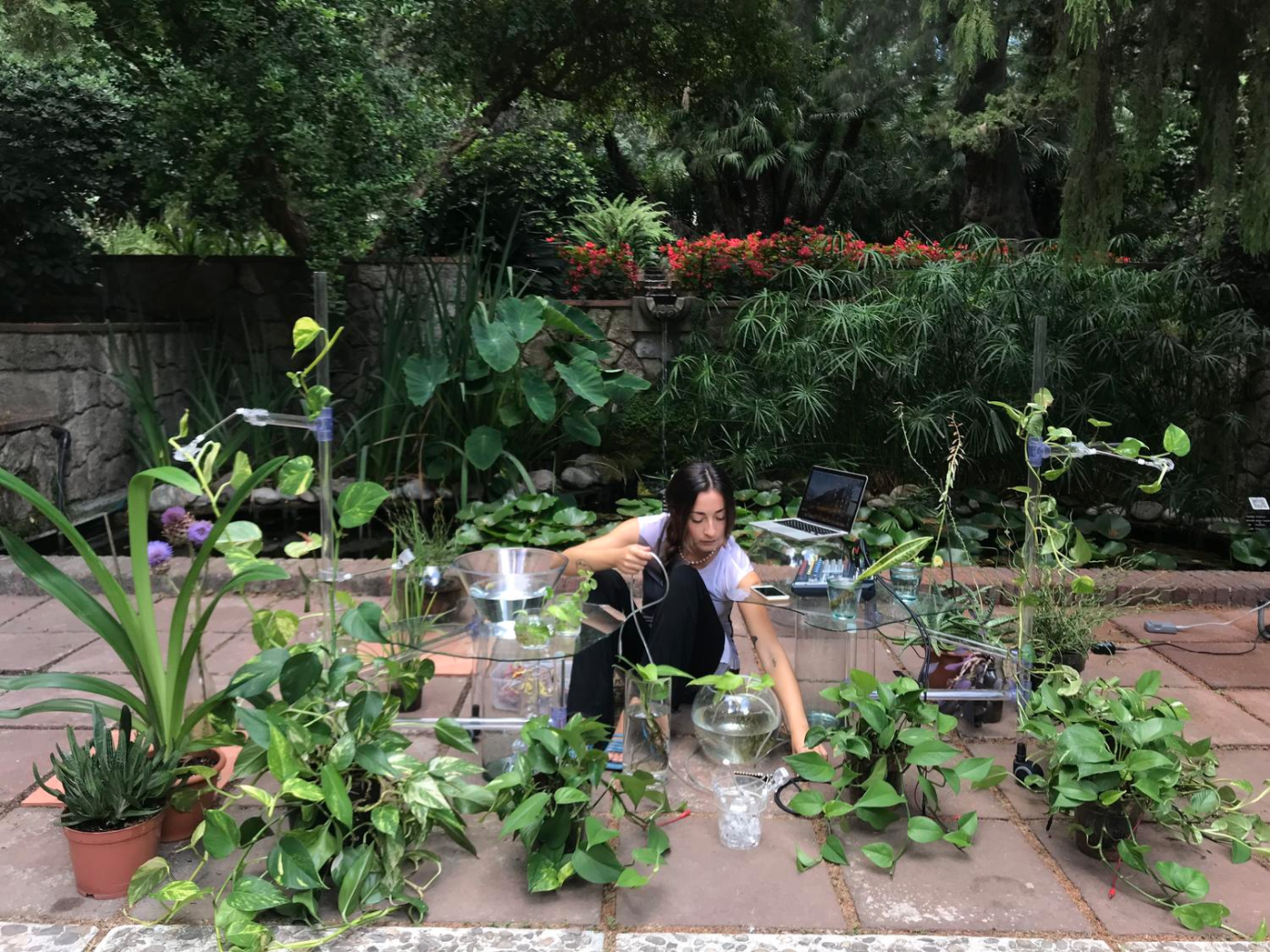Dear Michael: Fictions of Masculinity
In his video essay, ‘Dear Michael’, Agil Abdullayev presents a social portrait layering and deconstructing narratives of masculinity, identity and male friendship.
Agil’s interdisciplinary research-based practice examines Azerbaijani identity and culture with a focus on topics concerning gender and social class, frequently through the lens of his childhood memories and experiences. In the single-channel video work ‘Dear Michael’, these themes materialize in the form of a visual essay, in which personal, cultural and fictional narratives are interwoven via a meandering account of an imaginary friend called Michael.
Throughout the video, the artist’s casual monologue unfolds — at turns both humorous and emotional — accompanied and interjected by clips, stock footage, social media posts, and music. Shifts in mood are represented by a sequence of emojis floating behind the narrator’s head, while a background of pink clouds and a patch of star-like flecks of light moving through darkness transport the story to a fantasy realm.
But alongside the playfulness, candy-colored background, and blurring of distinctions between real and fictional, the work touches on subjects like bullying, toxic masculinity, and feeling like an outsider. For Agil, exploring male friendships via alter egos and imaginary friends has always been a vehicle for navigating such issues and the hostile environment they create: “…as a shy, feminine and overweight boy, I always had alter egos in my head at different stages of my life. They were all fearless and took me somewhere full of joy.”
“My Michael partially came out of those [Hollywood] characters — as American, smart, happy, physically and mentally strong, breaking down barriers and standing up against abuse of power. Challenging his time and society, he becomes something bigger than the average person from his hometown.”
While growing up in a small neighborhood in Baku, Azerbaijan, Agil found it difficult to connect with like-minded people, and was often confronted by rigid gender and social expectations at home, in school and other public spaces. Agil continues, “Because it was a hostile environment for me everywhere I went, I worried and feared that I was an unwanted and fragile member of this society.”
Developing friends and male relationships on his own terms helped Agil to feel more confident and secure in his identity. It gave him the distance needed to see himself more clearly, empowering him to stand up against these challenges without trying to change who he is.
First, his confident and social alter ego Tural took shape, later followed by Michael — the titular character of the 2017 video essay. “I was 12 or 13 when I started watching Hollywood movies, which included plots about a guy leaving his small hometown to follow his dreams… I thought that the problem was not me; it was the city and people I was surrounded by. So I wanted to leave my hometown like every Michael in those American movies and pursue my dream of being happy,” Agil explains.
“I work in the format of writing my memories and visually collecting them — looking at what made me and how these influences, in the form of society, culture, history and religion, continue to shape us.”
The highly personal nature of ‘Dear Michael’ filters through a broader social examination of shyness, sensuality, intimacy and aggression via references to martial arts, social networking, and pop cultural influences. Through a form of audiovisual collage, which appears framed by smartphone cameras, Agil parses through multiple layers of identity, friendship and belonging in an immediate though detached manner.
About the choice of medium, Agil elaborates, “Video essays have the advantage of the structure and language of film to advance my annalistic arguments. I am also trying to be objective (as much as it’s possible in an artist’s film); I am not judgmental or biased, but trying to understand and validate these conditions to find different approaches for a different tomorrow.”
Installation view of ‘Dear Michael’ at Nottingham Trent University.
Discover Contemporary Art
ArtConnect is the leading destination to discover emerging contemporary artists worldwide.
More interviews you might like














